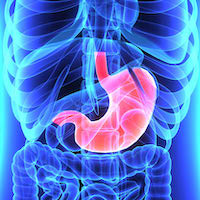


North Carolina Research Campus team receives major NIH award for precision nutrition research
KANNAPOLIS, N.C., January 27, 2022 – The National Institutes of Health (NIH) has awarded a $19.2 million 5-year grant, pending the availability of funds, to a consortium of North Carolina university researchers who will apply cutting-edge analytical techniques to...
International MiBioGen consortium identifies genetic factors involved in shaping the composition of the human gut microbiome
Katie Meyer, ScD, is one of many UNC Nutrition Research Institute (NRI) faculty members leading her field through innovative research. Recent technological advances are allowing researchers such as Meyer and her team to substantially broaden our knowledge of the human...
NRI Included in UNC Creativity Hubs Inaugural Award to Study Obesity
May 14, 2018 – Five NRI faculty members are among a team of UNC researchers receiving an award to study one of the world’s most pressing issues: the obesity epidemic. The cross-disciplinary team, known as the Heterogeneity in Obesity Creativity Hub, will leverage the strengths of Carolina’s schools of medical and health sciences, affiliated research centers and institutes, and prowess in big data management to take a novel approach to assess the underlying causes of obesity to unlock new, targeted ways to treat the disease.

Do Eggs Cause Heart Disease?
October 25, 2016 • Several recent studies linked increased levels of a metabolic product of dietary choline with higher risk of cardiovascular disease (CVD) (Wang et al., 2011; Tang et al., 2013) through a mechanism that involved gut microbiota-produced trimethylamine oxide (TMAO). These studies have sparked considerable scientific (and non-scientific) discussion, with health advice from some groups suggesting avoidance of meat and eggs (significant sources of choline) and from others suggesting that the findings have been vastly overinterpreted.
Go With Your Gut: How a community of trillions affects your individual health
July 1, 2015 • Everyday we learn more about how the gut microbiome may influence health. Our gut microbial community—a super-organism, with trillions of members—has been associated with obesity, diabetes, cancer, heart disease, and immune disorders, and even moods. These findings have generated enormous enthusiasm among researchers and the lay public, as they suggest a largely untapped area for health-promoting interventions. One mechanism through which the gut microbiome may affect health is through the metabolism of food and nutrients.
